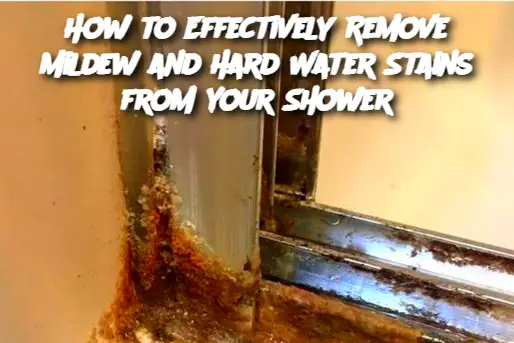ADVERTISEMENT
Essential oils: If you prefer a different scent or want additional antibacterial properties, you can add a few drops of essential oils like tea tree, eucalyptus, or lavender to the cleaning mixture.
Hydrogen peroxide: If mildew persists, mix hydrogen peroxide with vinegar for an extra-strong cleaning solution that can tackle even the most stubborn mildew.
Cream of tartar: For especially tough mineral deposits, a paste made of cream of tartar and water can be applied to hard water stains and scrubbed away.
Frequently Asked Questions:
How often should I clean my shower to prevent mildew and hard water stains? It’s a good idea to clean your shower at least once a week to prevent build-up. However, a quick spray with the vinegar solution after each use can help keep mildew and stains at bay.
Can I use bleach instead of vinegar? While bleach is a strong disinfectant, it can be harsh and harmful to both the environment and your health. Vinegar is a safer, natural alternative that works just as effectively in most cases.
How do I clean the grout between tiles? To clean grout, apply the vinegar-water solution and scrub it with an old toothbrush. For extra cleaning power, mix baking soda with water to create a paste, and apply it directly to the grout before scrubbing.
Are there any surfaces I should avoid using vinegar on? While vinegar is safe for most shower surfaces, avoid using it on natural stone surfaces like granite or marble, as it can cause damage over time. Use a pH-balanced cleaner for these materials instead.
How can I prevent hard water stains from forming in the future? After each shower, use a squeegee or towel to wipe down the glass and tiles. This reduces water spots and prevents hard water stains from accumulating. Additionally, installing a water softener can help reduce mineral deposits in your water.
By following these simple steps, your shower will remain free from mildew and hard water stains, making it a cleaner and more pleasant place to relax.
ADVERTISEMENT
